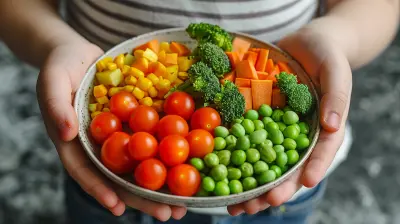Packed Lunches that Fuel Your Child’s Brain
3 July 2025
Let’s be real — packing lunchboxes every weekday can feel like the world’s most repetitive chore. You’re half-asleep, the kitchen’s a mess, and suddenly you’re trying to decide if peanut butter and jelly (again) is good enough. But if I told you those little lunchboxes can be magic boxes that fuel your child’s growing brain, would you look at them differently?
Whether your kid is solving math problems or trying to remember the steps to the school play's choreography, their brains need the right fuel to function at full throttle. Believe it or not, what you pack can make the difference between a sluggish, distracted child and a focused, energetic learner on the ball.
In this post, we’ll break down the best brain-boosting foods, how to make lunch fun (without spending hours in the kitchen), and share lunchbox ideas that’ll have your child actually excited to open that container. Yep, it’s possible. Let’s dive in.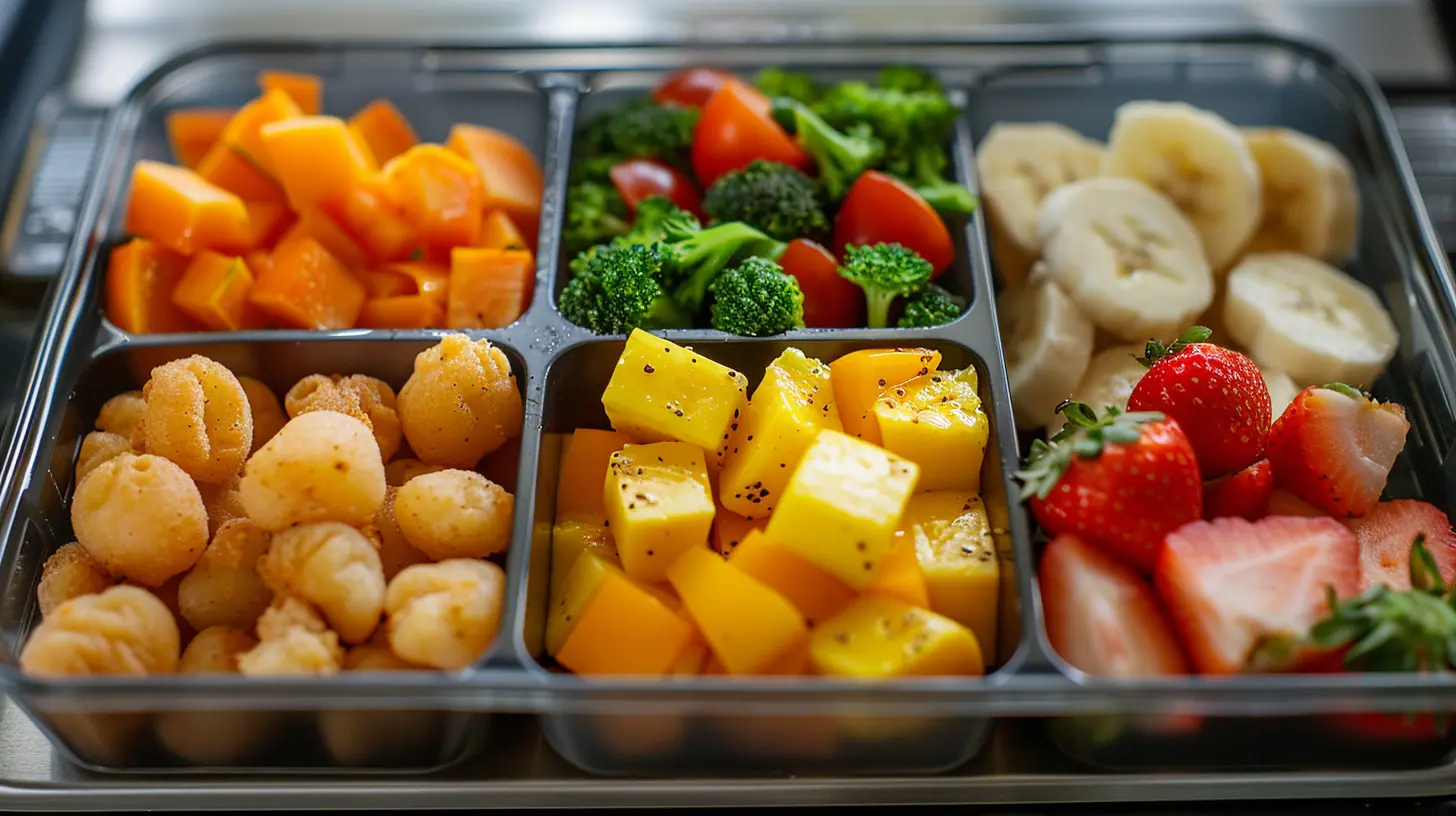
Why Brain-Boosting Lunches Matter
We don’t often connect nutrition with learning, but the two go hand in hand like peanut butter and, well, bananas (or jelly — your call). A well-packed lunch isn’t just about keeping hunger at bay; it directly impacts how your child thinks, feels, and behaves throughout the day.The Brain is Kind of a Big Deal
Your child’s brain uses more energy than you’d think — it’s like a little power plant, constantly working. In fact, the brain uses about 20% of the body’s total energy. That means every nutrient counts. The right foods can help with:- Focus and concentration
- Memory retention
- Mood stability
- Energy levels
- Cognitive development
Pretty impressive, right? Poor food choices, especially high-sugar, low-nutrient options, can leave your child foggy-headed, cranky, and tired — definitely not ideal for a day full of learning and playing.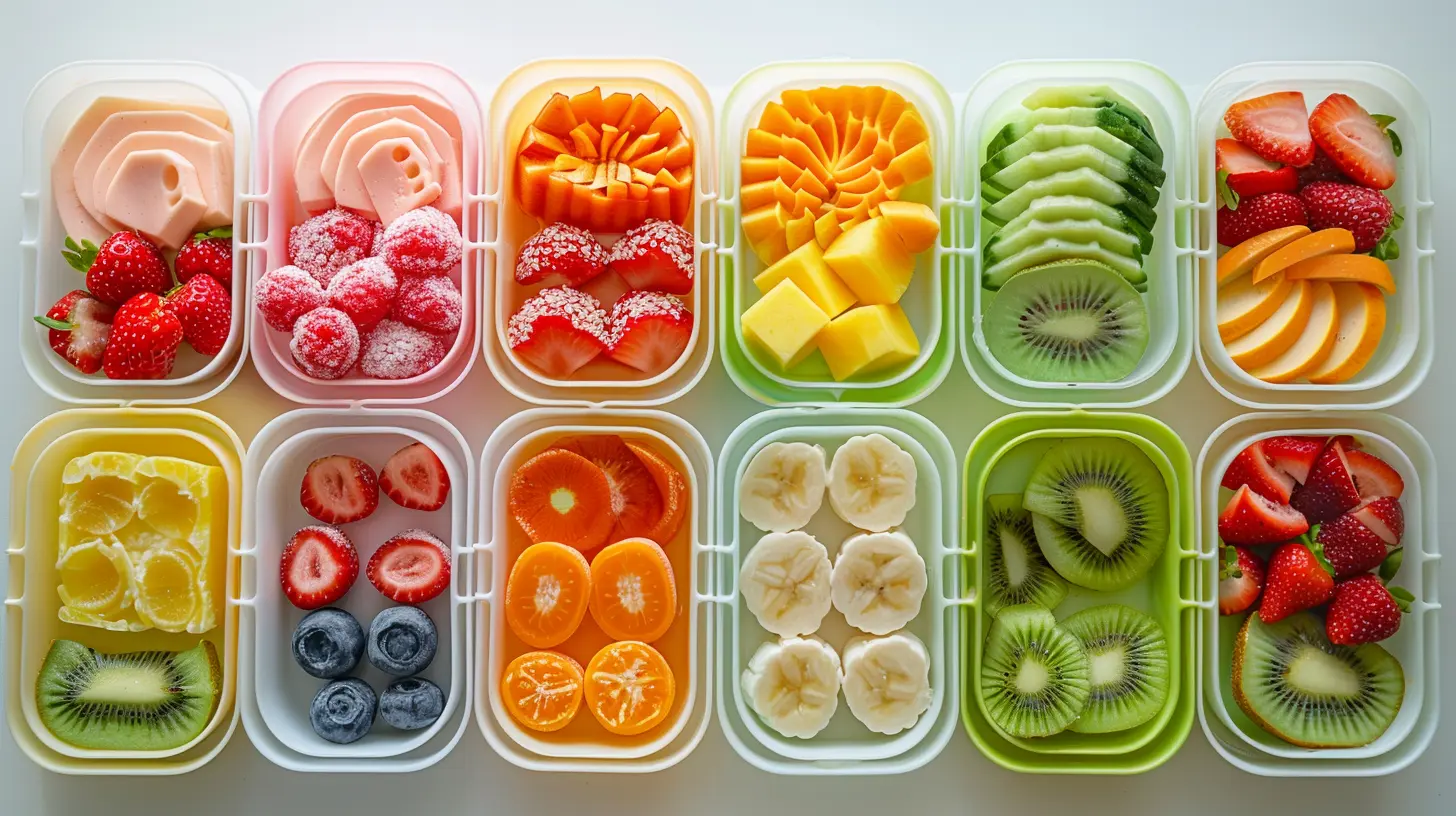
Essential Nutrients for Brain Power
Let’s get nerdy for a sec — but just enough to explain what kids’ brains actually need to thrive.1. Healthy Fats
These are your brain’s best friend. Omega-3 fatty acids, in particular, are crucial for brain development and function. They help brain cells communicate better — think of them as the oil that keeps the machine running smoothly.Best sources for lunchboxes:
- Salmon or tuna salad sandwiches
- Avocado slices or guacamole with whole-grain chips
- Nut butters (if your school is nut-friendly) or sunflower seed butter
2. Complex Carbs
Carbs get a bad rap, but complex carbs are like the slow-burn logs in a campfire — they keep your child steadily energized without the sugar crash.Great options include:
- Whole-grain bread, wraps, or pasta
- Brown rice
- Quinoa
- Sweet potato cubes
3. Protein
Protein keeps those little muscles growing and helps with brain chemicals that affect focus and mood. It also helps kids feel full longer, so they’re not hangry monsters by 2 PM.Brainy protein picks:
- Hard-boiled eggs
- Cheese slices or string cheese
- Turkey or chicken roll-ups
- Hummus (also a good dip for veggies!)
4. Fruits and Veggies (Yes, Really)
Colorful fruits and veggies are packed with antioxidants, vitamins, and minerals that protect brain cells and boost memory.Kid-approved faves:
- Blueberries (freeze them for a cool treat!)
- Bell pepper strips
- Grape tomatoes
- Apple slices with cinnamon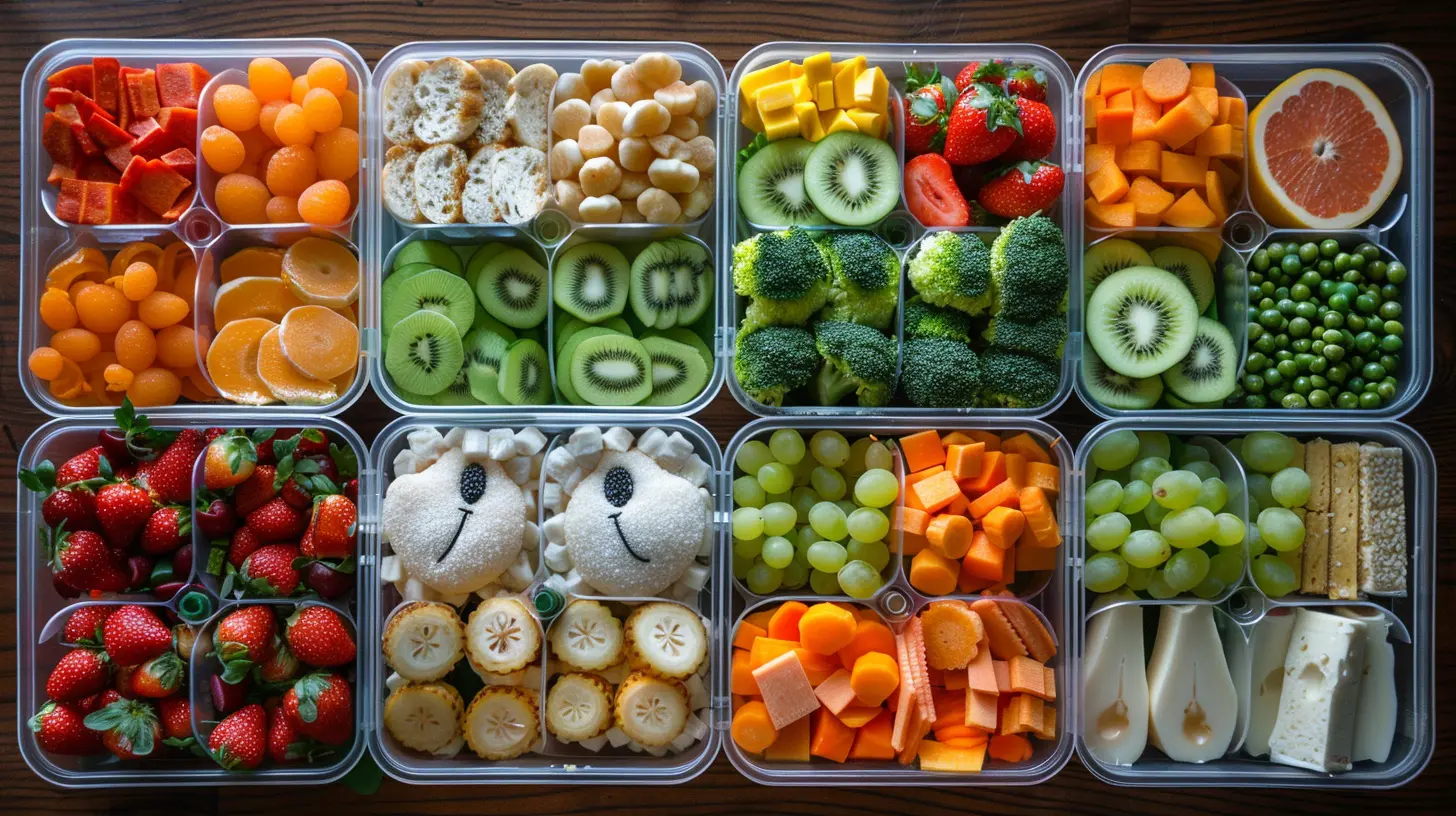
The Lunchbox Formula for Success
Instead of reinventing the wheel every morning, use this simple formula to build brain-friendly lunches:1 Smart Carb + 1 Quality Protein + 1 Healthy Fat + 1 Fruit + 1 Veggie + 1 Fun Treat
It’s like meal-prepping with a cheat code. Let’s plug and play with a few examples.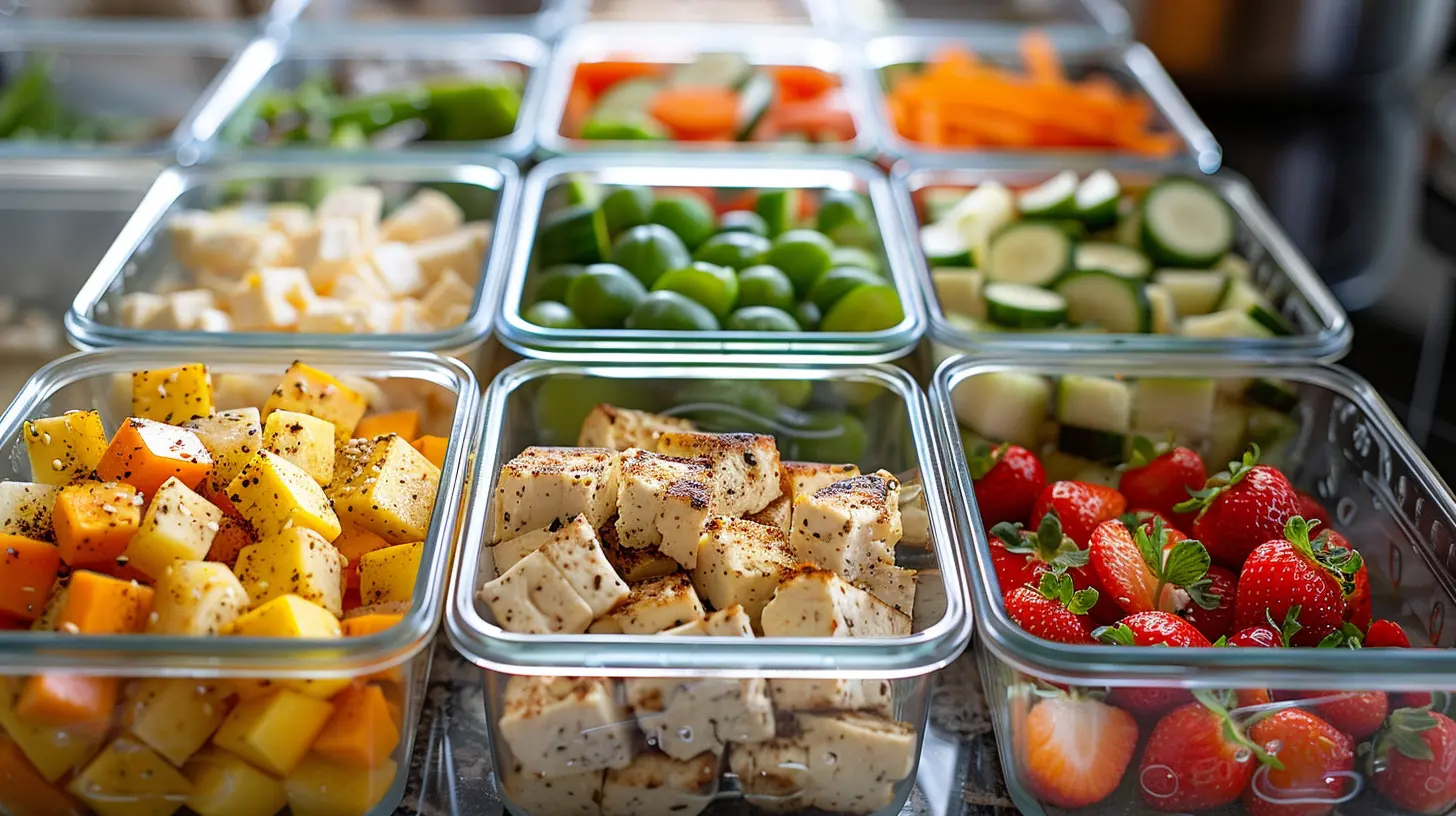
Easy Lunchbox Ideas That Boost Brain Function
No Pinterest-mom pressure here. These lunches are simple, nutritious, and most importantly — kid-approved.🥪 1. The “Snacky Lunch” Bento Box
Think lunchable… but smarter.- Whole-grain crackers
- Chicken or turkey cubes
- Cheese slices
- Cucumber and baby carrots
- Apple slices
- A small square of dark chocolate
🥙 2. Mediterranean Wrap
Fresh, zesty, and full of brain-loving goodness.- Whole-wheat tortilla wrapped with hummus, grilled chicken, spinach, and shredded carrots
- Greek yogurt (look for low-sugar options)
- Berries
- A couple of olives (if your kid’s adventurous!)
🍝 3. Leftover Pasta Salad
Dinner leftovers, meet tomorrow’s hero.- Whole-wheat pasta tossed with olive oil, cherry tomatoes, mozzarella cubes, and diced bell peppers
- Boiled egg on the side
- Banana or orange segments
- Trail mix (only if your school allows nuts)
🥚 4. Breakfast-for-Lunch Combo
Because who doesn’t love breakfast all day?- Hard-boiled eggs or mini veggie muffins
- Whole-grain mini pancakes with sunflower butter
- Sliced strawberries
- Cucumber slices
- Yogurt pouch
🐟 5. Tuna & Crackers DIY Sandwich Kit
Let 'em build it themselves for added lunchbox fun.- Tuna mixed with Greek yogurt and a bit of mustard
- Whole-grain crackers
- Celery sticks and grape tomatoes
- Blueberries
- A small oatmeal cookie
Make It Fun: Tricks to Get Your Kid Excited About Lunch
The truth? Kids eat with their eyes first (don’t we all?). A boring or unfamiliar lunch might come right back home untouched. Here are some ways to jazz things up without going overboard.🌈 Add Color
More color usually means more nutrients — and more excitement. Mix it up with red peppers, orange carrots, green cucumbers, purple grapes, and yellow mangoes. It’s like a rainbow your kid can eat.🍴 Ditch the Same-Old Packaging
Use bento boxes, silicone cupcake liners, and cute picks or mini forks to separate foods and make mealtime more interactive. Think of it like lunchbox Legos — kids love building and choosing.🔄 Rotate Favorites
If your child loves quesadillas, try mini quesadilla triangles today and a breakfast quesadilla next week. Variety keeps lunch interesting without overwhelming them.🧒 Let Them Help
Let your kids pick one fruit and one veggie each week for their lunch. They’re way more likely to eat what they helped choose or assemble.Packing Tips to Keep Brainy Lunches Fresh and Safe
Nobody wants a warm yogurt or a soggy sandwich. Ew. Here’s how to keep that brain fuel fresh and tasty:- Use an insulated lunch bag + ice packs
- Freeze yogurt tubes or applesauce pouches – they’ll defrost by lunch
- Pack dressings and dips separately to avoid sogginess
- Prep the night before when possible to save your sanity
Avoid These Brain-Drainers
Even the most loving lunch can accidentally zap energy if packed with the wrong stuff. Watch out for:❌ Sugary Snacks
Desserts and sugary drinks lead to sugar crashes — which leads to crankiness and lack of focus.❌ Processed Lunch Meats (in excess)
They’re convenient, sure, but many are loaded with sodium and preservatives. If using them, go for nitrate-free or lower-sodium options.❌ Empty Carbs
White bread, sugary granola bars, and chips don’t offer much long-term energy. Swap with fiber-rich, whole-grain versions when possible.Real Talk: What If Your Kid is a Picky Eater?
First of all, breathe. You’re not alone. Many kids go through picky phases — or entire picky childhoods.Here are a few sanity-saving tips:
- Stick to foods they already like, and add just one new thing at a time
- Offer new items in small, no-pressure portions (think one slice of bell pepper, not five)
- Keep offering — it can take up to 15 tries for a child to accept a new food (yeah, really)
- Present it differently: your kid may hate raw carrots but love them shaved into ribbons or dipped in hummus
Final Thoughts
Packing lunches that support your child’s brain isn’t about being perfect — it’s about being intentional. Start small. Add one new brain-boosting food each week. Pay attention to how your kid feels after lunch. Are they more focused? Less cranky after school?And remember: lunchtime is more than just a refueling pit stop. It’s a chance to give your child the tools they need to conquer the rest of their day with confidence, curiosity, and creativity.
So next time you’re staring into the fridge at 7 AM, coffee in hand, just remember — you’re not just packing lunch. You’re building a better brain, one bite at a time.
all images in this post were generated using AI tools
Category:
Healthy MealsAuthor:

Kelly Snow
Discussion
rate this article
1 comments
Pia Kirkpatrick
Great insights! Packed lunches are essential for brain development. Incorporating a variety of nutrients can truly enhance focus and learning. Thanks for sharing these practical tips!
July 10, 2025 at 4:38 AM

Kelly Snow
Thank you! I'm glad you found the tips helpful. Nourishing our kids with diverse nutrients is key to their development and focus!


